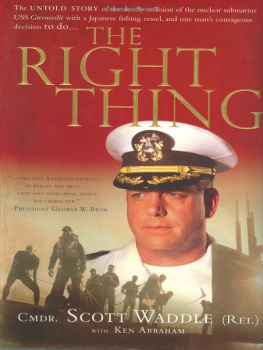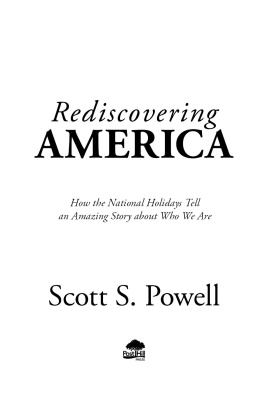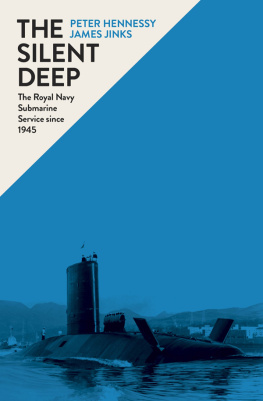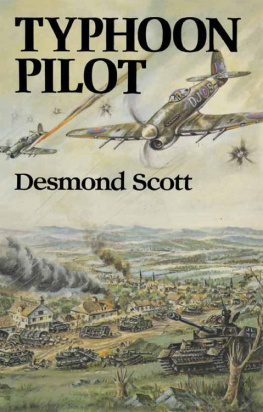
The
RIGHT
THING
The
RIGHT
THING
I know this fine American patriot feels terrible about what took place.
It was a terrible accident. And like any good commander, hes taken the heat,
hes taken the hit. I read in the newspaper that the man is actually going
to go over to meet with some of the parents, which I think is an act
of great compassion. This is an officer who bears all the responsibility,
and to me, that says something about the mans character.
President George W. Bush NBC
Today Show interview
CMDR. SCOTT WADDLE (RET.)
WITH KEN ABRAHAM

THE RIGHT THING
Copyright 2002 by Scott Waddle.
Published by Integrity Publishers, a division of Integrity Media, Inc.,
5250 Virginia Way, Suite 110, Brentwood, TN 37027.
HELPING PEOPLE WORLDWIDE EXPERIENCE the MANIFEST PRESENCE of GOD.
All rights reserved. No portion of this book may be reproduced, stored in a retrieval system, or transmitted in any form or by any meanselectronic, mechanical, photocopy, recording, or any otherexcept for brief quotations in printed reviews, without the prior written permission of the publisher.
Scripture quotations used in this book are from the New American Standard Bible (NASB), copyright 1960, 1977 by the Lockman Foundation. Used by permission.
Cover Design: The Office of Bill Chiaravalle, www.officeofbc.com
Interior Design/Page Composition: PerfecType, Nashville, TN
Library of Congress Cataloging-in-Publication Data
Waddle, Scott.
The right thing / by Scott Waddle ; with Ken Abraham.
p. cm.
ISBN 1-59145-036-5
1. Waddle, Scott. 2. United States. NavyOfficersBiography. 3. Greene-ville (Submarine) 4. Ehime Maru (Training ship) 5. Collisions at sea Hawaii. 6. Submarine disastersHawaii. I. Abraham, Ken. II. Title.
V63.W23 A3 2002
910'.9164'9dc21
[B]
2002038835
Printed in the United States of America
03 04 05 06 07 RRD 9 8 7 6 5 4 3 2 1
DEDICATION
This book is dedicated to the two most important people in my lifemy wife, Jill, and daughter, Ashley. Thank you for loving me so unconditionally and for standing by me! I am truly a blessed man to have you both in my life.
I also dedicate this book to the members of the armed forces, along with their families, for their personal sacrifice in defending our freedom and protecting our way of life.
Special recognition goes to the men who served with me on board the USS Greeneville during my two years in command. I will never forget you shipmates and am proud to have served with you as your captain.
Just as driving a nuclear-powered submarine is an adventure that requires the assistance and expertise of numerous talented and dedicated individuals working together to accomplish a common goal, Ive discovered that writing and publishing a book is a collaboration between many highly skilled and deeply committed individuals.
I extend my heartfelt appreciation to Ken Abraham for helping me put thoughts and words into coherent text, and to Byron Williamson and his staff at Integrity Publishing for believing in me and for making this book possible. May you continue to be blessed, and may you always live up to your name.
CONTENTS
Acknowledgments
27. Doing the Right Thing
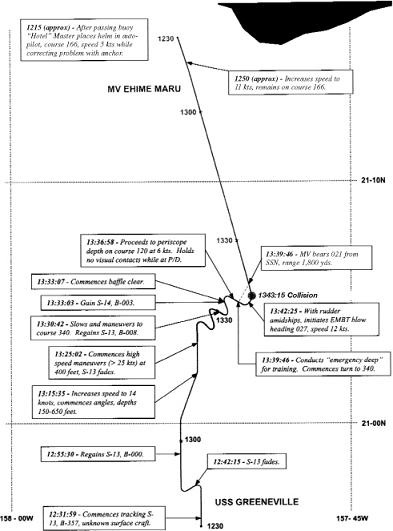
CHAPTER 1
A TIME TO SPEAK
Over my dead body! You are not going to take that witness stand, Scott. Not without immunity! Ill kill you before I allow you to take the stand to testify without immunity, my lawyer, Charlie Gittins, railed. On second thought, I wont have toyoud be killing yourself!
I smiled slightly at my defense counsels impassioned plea; he had said something similar to me the first time Id met him, and his attitude hadnt changed over the weeks he had been defending me. I knew Charlie wanted to protect me, but I felt compelled to take the stand. I honestly believed that the truth was not the worst thing that could be known about the sorrowful events in which I had played a part.
I have to, Charlie. I did it. Nine people are dead because of me.
It was an accident, Scott. A horrible, freak accident, something that should never have happened, and it was not your fault!
No, Charlie. Theres a time to be silent and a time to speak up for what is right. Im the only guy who really knows what happened aboard that ship that day. Im the only one who knows what I saw through that periscope. I have to tell the truth; I have to take responsibility and let the chips fall where they may. Its the right thing to do.
Charlie Gittins, one of the worlds foremost attorneys handling military cases, shrugged his shoulders in exasperation. Charlie knew how to build a strong defense, as well as how to mount a strong offense. He had gained national recognition during the Navys Tailhook scandal, and he was not afraid to take a risk in court or go for the jugular when necessary. But from the beginning of the trial, Charlie had adamantly opposed my testifying without immunity before the naval court of inquiry, and he had informed the court of that decision early on. When Admiral Thomas Fargo, commander in chief of the Pacific Fleet, refused to grant me immunity, Charlie stuck to his guns. He would not allow me to testify during the inquiry without immunity. The risks were too high. These were serious charges: I was suspected of dereliction of duty, improper hazarding of a vessel, and negligent homicide. If I said the wrong thing or answered the three-officer panel in any way that incriminated me, I could be subjected to court-martial, tried, convicted, and imprisoned. This was no trifling matter. Nine Japanese civiliansfour of them teenagerswere dead as a result of my choices.
I had ordered the emergency main ballast tank blow that had brought the USS Greeneville, the nuclear attack submarine I had commanded, ripping up through the water and smashing into a Japanese fishing boat, the EhimeMaru, off the coast of Pearl Harbor on February 9, 2001. The Greenevilles steel rudder, specially reinforced to tear through ice, tore diagonally through the underbelly of the Japanese ship, causing it to sink within minutes. Worse yetto the Japanese public, at leastI had been entertaining civilian guests, two of whom were at the subs controls at the time of the impact. On a broader scale, it was the first major foreign-policy challenge for the newly inaugurated president, George W. Bush.
Devastated as I was at the deaths of the nine innocent people and the negative publicity for our country, I was nonetheless confident that the Navy, the nation, and the world would see the tragedy for what it wasa horrible accident. Although I knew I wouldnt walk away unscathed, I did hope to walk away with my life and my dignity.
But things had not gone well during the inquiry. Several of my officers and crewmembers had testified with immunity, and they had answered truthfully. But through their pointed questions, the admirals had painted a picture of the Greenevilles captainmerushing through procedures, running a loose and informal ship environment, and showing off for the distinguished visitors who had been aboard the Greeneville for a demonstration cruise that fateful day.
For eleven days, I had sat silently in the courtroom, with the family members of the Japanese victims sitting behind me and drilling holes in my head with their glaring eyes. A Japanese submarine admiral sat facing me on the court of inquiry as a nonvoting adviser, an unprecedented move in American military justice. Every time some detail of the
Next page
